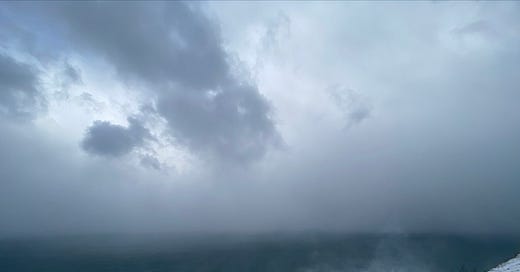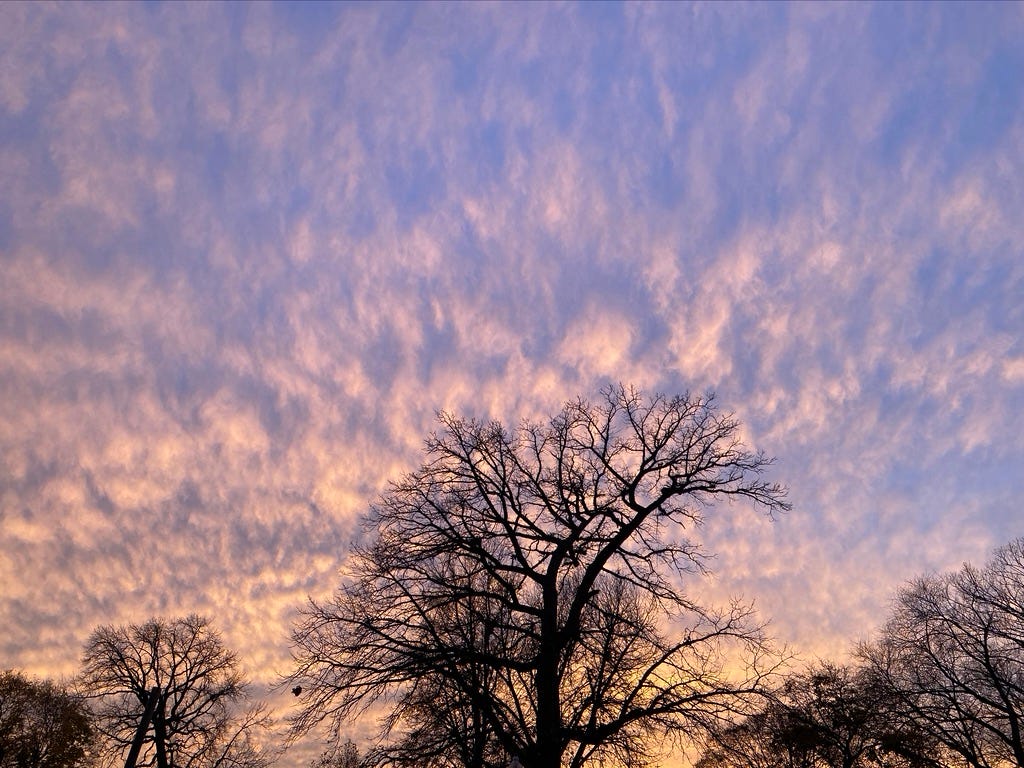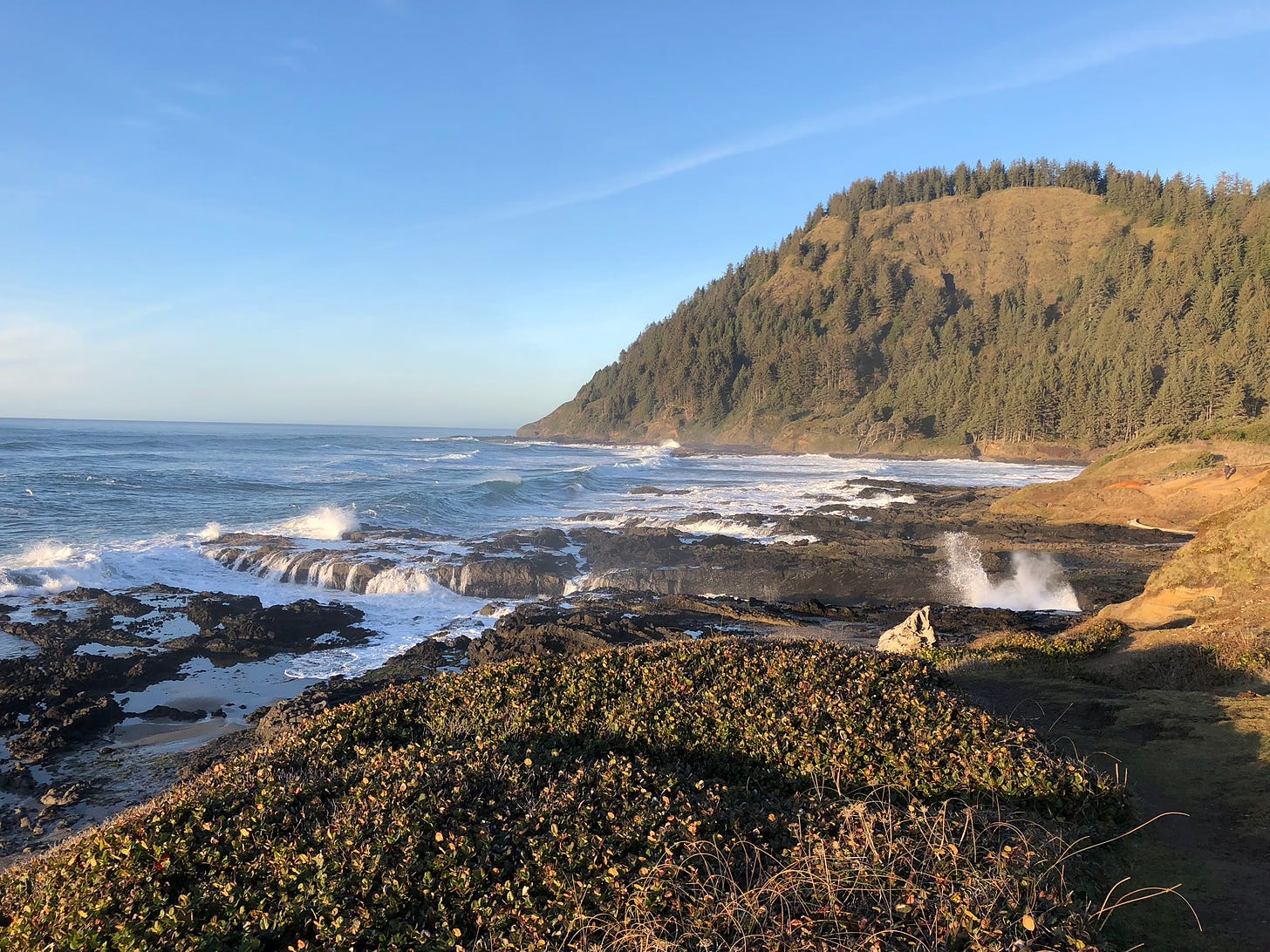What Is A Museum Compared With Being Shown Some Star's Surface
Good things happen when you make room for astonishment
I’m thinking about a piece of a Mary Oliver poem that you might have seen at some point. It reads:
Instructions for living a life:
Pay attention.
Be astonished.
Tell about it.
Lines of poetry, like most other things, tend to be less rich when shorn of context. This short section comes from a longer poem called “Sometimes”; for my money, it isn’t even the best part of that poem.1 But it has stuck around in the zeitgeist for good reason; you could do worse, as advice goes. And as someone who likes to write it’s nice to have my priors confirmed by an expert.
This is, I think, what draws me to so much writing about the outdoors.2 There are fewer astonishing things one can tell about than what you encounter in the mountains, or along rivers, or deep in the woods. Certainly a car crash can be astonishing, or the demolition of a building, or a particularly good piece of street art. But in general I find it’s easier to be truly astonished by things that fall outside the bounds of human creation.
As with all other types of writing, outdoor writing has its own canon. Modern times have brought a critical (and necessary) reevaluation of that canon, but sometimes canon is canon for good reason. Henry David Thoreau certainly belongs there when it comes to the outdoors, even if he did need his mom to do his laundry; his breathless description of his time on Mount Katahdin in Maine is one of the most exemplary bits of outdoor astonishment-then-telling-about-it I’ve ever read.
…here not even the surface had been scarred by man, but it was a specimen of what God saw fit to make this world. What is it to be admitted to a museum, to see a myriad of particular things, compared with being shown some star's surface, some hard matter in its home! I stand in awe of my body, this matter to which I am bound has become so strange to me. I fear not spirits, ghosts, of which I am one, — that my body might, — but I fear bodies, I tremble to meet them. What is this Titan that has possession of me? Talk of mysteries! — Think of our life in nature, — daily to be shown matter, to come in contact with it, — rocks, trees, wind on our cheeks! The solid earth! the actual world! the common sense! Contact! Contact! Who are we? where are we?
This short paragraph does what I think all good outdoor writing should aspire to do: capture both the wonder of the natural setting one is writing about and the chain reaction of internal, existential transformation that the setting has induced. Devin Kelly, in his Ordinary Plots newsletter, describes this perfectly, writing about the famous “Total Eclipse” essay by Annie Dillard (who is herself one of the giants of outdoor literature):
It tries so hard and so playfully to say something that is impossible to say that it reminds you, in its attempt, that there are things that truly are impossible to describe, that the world itself is beyond description.
Astonishment! There’s nothing like it. And trying to tell about it will necessarily always fall short of experiencing it. Nevertheless, in keeping with that poem’s advice, I’d like to tell you about a time that I was paying attention and was rewarded with astonishment:
My mom’s family has long held a farm property in New York’s Chemung Valley, on the southern border of the state. For my entire childhood this was the place wonderment was most likely to happen to me, straddling, as it did, the line between wildness and civilization. It was there that I learned to swim in creeks, to scramble up shale cliffs into the woods, to dig under rotten logs for bugs and other critters, to cope with the terrifying darkness of real night and the inevitable death of animals.
In 2015 I spent some time by myself down at the farm, a prospect that would have thrilled and terrified me in childhood. At the end of the trip, as I drove away, I found myself intently watching the woods on the side of the winding country road, perhaps to try to soak up a last few moments of that unique spirit of the place before getting back to my normal life. I can’t say for sure. But I can say that as I rounded one of the countless bends, I clearly saw a fisher cat leap from the underbrush, twist, pounce on something, and disappear again. If I close my eyes I can still see it suspended there in midair, a mass of lithe brown fur with a clever and deadly face.
Fisher cats are notoriously elusive creatures. Once widespread up and down the east coast, by the late 1800s, they “had been extirpated in most of the Northeast outside of Maine and perhaps northernmost New Hampshire” thanks to the desirability of their fur. Their range has expanded back into greater New England and New York in the century since that trapping craze, but human sightings of fishers, like their distant cousins the wolverine, are exceedingly rare.
Yet somehow I saw one. I saw one and I will remember it forever. And I got to have this experience not through any special means or talents, but by being outside and paying attention (“outside” being the only setting in which I am even really capable of paying attention, it turns out). It’s enough proof of concept to make me want to commit to doing that for the rest of my life.
In keeping with that, here is a rough pair of poems I wrote on the road this summer, an experience that allowed me to spend a lot of time paying attention and being astonished.
Crow Wing River
I cross the Crow Wing River on wheels
Which is the cheapest option available.
To my knowledge I have never hit an animal with my car.
If that’s true it doesn’t make me a good man
And anyway who am I to say a bug is less than
An animal. Ten thousand grasshoppers
Turned to pulp on my windshield on the plains of Montana.
I am no better than the people memorialized by crosses
on the side of the highway. Fireweed is living proof that
Burned and ruined bodies can grow beautiful things.
Time is the world’s most inexorable weapon but
It is no less kind for being so.Morning on Rideau Lake If you add up all the blood I’ve lost To mosquitoes you could make a Whole other person. Hush hush Pray the reeds as they catch My paddle blade. Rowing past the Lily pads I learn that sometimes the Jewel in the lotus is simply a frog. Last night I dreamed two ospreys but I don’t remember what they meant to Teach me. The silver water might go on forever beneath me and I realize it’s a blessing I can't see the bottom. I will not let my heart be stone.
Thanks, as always, for reading. I’ll talk to you next week.
-Chuck
PS - If you liked what you read here, why not subscribe and get this newsletter delivered to your inbox each week? It’s free and always will be, although there is a voluntary paid subscription option if you’d like to support Tabs Open that way.
The winner:
I don’t know what God is.
I don’t know what death is.But I believe they have between them
some fervent and necessary arrangement.
My wife and I have an entire bookcase dedicated just to books that deal with nature, backpacking, outdoor adventures, things of that nature. It’s a small bookcase but it’s filling up quickly.







Love that first poem! Echoes of Jim Harrison. Really stunning and lovely.